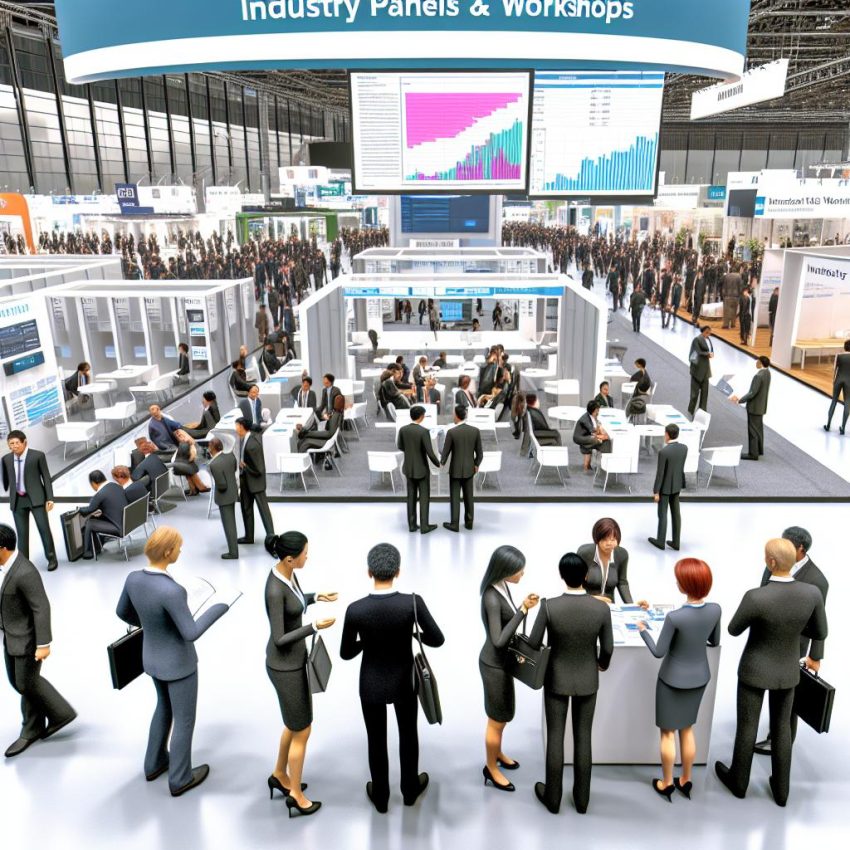The Significance of Industry Panels and Workshops at Investment Trade Shows
Investment trade shows offer a substantial platform for industry professionals to network, share insights, and explore new opportunities. Among the various elements that constitute these trade shows, industry panels and workshops play a pivotal role. These sessions provide an interactive environment where professionals can gain valuable insights, engage in discussions, and explore new trends.
Understanding Industry Panels
Industry panels consist of experts who share their experiences and insights on specific topics relevant to the investment sector. These panels often cover a range of issues—from market trends to emerging technologies. Each participant typically brings a unique perspective, offering attendees a well-rounded understanding of the subject matter.
In-depth Exploration of Current Trends: The primary advantage of attending an industry panel is the opportunity to hear from experienced professionals who have a comprehensive understanding of the market. These discussions often delve into in-depth analysis of current trends and future predictions, enabling attendees to form a clearer picture of the investment landscape. This type of exploration helps professionals not only to understand what is happening in the industry but also to anticipate potential changes and prepare accordingly.
Networking Opportunities: Furthermore, industry panels are a great opportunity for networking. Participants can engage in discussions, ask questions, and make connections with other professionals. This interaction can be invaluable for both seasoned investors and newcomers. Networking in this manner often leads to collaborations and partnerships, further enhancing business opportunities. Engaging with peers during these panels creates a space not only for learning but also for building professional relationships that can be beneficial in future investment ventures.
The Role of Workshops in Trade Shows
Workshops at investment trade shows are equally important, providing a hands-on experience that can enhance a participant’s understanding of various topics. These sessions are often designed to be interactive, encouraging participants to engage actively with the material.
Fostering Practical Skills and Knowledge: Workshops typically focus on practical skills and knowledge. They are an excellent resource for those looking to deepen their understanding of specific areas like portfolio management or quantitative analysis. Attendees often work through real-world scenarios, gaining skills that they can directly apply to their professional roles. The real-world applications discussed in workshops make the learning experience more tangible and relevant, significantly enhancing the participants’ ability to implement new strategies or technologies in their day-to-day operations.
Keeping Up with Industry Innovations: Moreover, workshops can help attendees stay updated with the latest tools and techniques in the industry. As the investment sector continues to evolve, new methodologies and software frequently emerge, and workshops can help professionals stay ahead of these developments. This aspect is especially crucial as the digital transformation of industries accelerates, making continuous learning and adaptation vital for success.
The Collaborative Nature of Workshops
Workshops are not only about learning new skills but also about fostering an environment of collaboration and discussion among participants. By interacting with peers, attendees can share their challenges and brainstorm potential solutions collectively. This collective effort often results in innovative approaches to problem-solving and a deeper understanding of the content being covered. Such environments encourage openness, allowing professionals to learn from each other’s experiences and apply these insights in practical settings.
Enhancing Professional Development
Both industry panels and workshops contribute significantly to professional development. They allow participants to expand their knowledge and skill set, which is essential for career advancement in the fast-paced world of investment. By attending these events, professionals can ensure they remain competitive and informed about the latest market developments.
Continual Learning and Improvement: Professional development is a continuous journey. The financial sector, in particular, is characterized by rapid change, making it crucial for professionals to remain engaged with ongoing educational opportunities. Industry panels and workshops cater to this need by providing essential platforms to acquire up-to-date knowledge and exposure to contemporary practices.
Building Competence and Confidence: Moreover, the skills and insights gained from these sessions can significantly boost a professional’s confidence in their ability to make informed decisions and take calculated risks. Having access to the knowledge shared by industry leaders and peers ensures that participants leave better equipped to handle the complexities of financial markets. This competence is a key factor in driving personal and professional growth, thus enabling participants to achieve their career objectives more effectively.
Conclusion
In conclusion, industry panels and workshops are integral components of investment trade shows. They provide a forum for learning, networking, and professional growth, offering attendees a chance to gain valuable insights and practical skills. These sessions are essential for anyone looking to succeed in the investment industry, making them a must-attend for professionals eager to enhance their careers. By participating in these dynamic and informative sessions, investment professionals can stay at the forefront of industry developments and continue to make informed strategic decisions that drive success in their respective fields.
This article was last updated on: August 3, 2025
